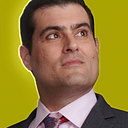Reading Your Obituary
Dear Magicians,
Alfred Nobel. The man who gave us dynamite. A man responsible for innumerable deaths.
And also the man whose name adorns the most prestigious prizes in science, the arts, and peacemaking.
But here’s what’s fascinating — these two facts are linked in a way few people understand.
One morning in 1888, Nobel had an experience that would transform history. He read his own obituary. Think about that for a moment. The paper had confused him with his recently deceased brother, Ludwig.
An honest mistake. But the consequences were profound.
“The Merchant of Death is Dead,” the headline gleefully declared.
It went on to describe a man who had made his fortune by enabling new ways to kill human beings at scale.
Nobel was stunned. Not by the error.
But by the truth.
This is how he would be remembered. This was his legacy.
But here’s where it gets interesting. Rather than accept this verdict, Nobel did something remarkable. He rewrote his story. The Nobel Prizes were his response to seeing his own obituary.
A deliberate transformation from merchant of death to patron of peace and human progress.
A few years ago, Brian Keating died.
As Shaggy would say might say it wasn’t me… For a moment, I had forgotten that, good narcissist that I am, I’d set up a Google Alert for my name. It’s a simple thing. Free. Takes 30 seconds. You get to find out who’s talking about you. Mostly it’s no one.
Then one day, it happened. A Google alert hit my inbox like a kiloton of dynamite.
“Brian Keating Dead at 62”
Immediately I declared, as Mark Twain would have said had Google alerts existed in his time, “Reports of my death are exaggerated.”
It wasn’t me. It was Brian R. Keating, a tea expert. Author of “How to Make Tea: The Science Behind the Leaf.”
Strange feeling.
I’m almost ashamed to admit feeling relief. But that’s human nature.
The deeper response was more unsettling. More useful.
What would my obituary say? What am I building? What’s my Nobel moment?
I interview 50 authors a year. I’m privileged to speak with some of the world’s greatest minds. Including actual Nobel laureates.
But am I doing enough?
Here’s what I propose:
Set up that Google Alert. Today. Now.
Let it serve as your memento mori — your reminder of death. Not to depress you. To motivate you.
Because here’s the thing about death: it’s coming.
The only question is what you’ll do before it arrives.
And whether your obituary will tell the story you want told.
Think about it.
Rather than fearing these alerts, embrace them. They are digital memento mori, pushing you toward a life of urgency, presence, and meaning.
When a name twin passes, use it as a reset button — a moment to realign with what truly matters.
As Seneca wrote: “You are dying every day.” The Google Alert just ensures you don’t forget. Here’s how to do it.
I think at first, it might be shocking and maybe even disturbing, but later on, you’ll be comforted hopefully because it will make you invest more meaning in your life.
Until next time, have a meaningful, M.A.G.I.C. Week,
Brian
Appearance
I had a wild time, as usual, with my buddies on the Drinkin Bros podcast! Caution: Not Safe For Work!
Genius
We are never definitely right; we can only be sure we are definitely wrong. — Richard Feynman
Image
I have good news and bad news. Last week, I depressed many of you with news of the low odds calculated by NASA for an asteroid impact on planet Earth in 2032.
That was the good news.
The bad news? The odds have doubled in the past week, thanks to new data from the JWST. If this keeps up, even I am going to get depressed.
Conversation
Ever wondered what it really takes to make groundbreaking discoveries in physics? In this fascinating conversation with Dr. Harry Cliff, author of The Science of Finding the Impossible: The Art of Discovery in Physics, we pull back the curtain on the unpredictable, exhilarating, and sometimes frustrating journey of scientific discovery. We dive into how anomalies spark new ideas, the challenges of proving statistical significance, and the constant struggle to make complex theories understandable to the world.
Plus, Harry gives us a sneak peek at his upcoming projects, including a mind-bending book about nothing! Don’t miss out!
Advertisement
My Intro to Cosmology course is now appearing exclusively at Peterson Academy. Join me on the 9-hour captivating journey through the cosmos, exploring its vastness, the tools used to unravel its mysteries, and the groundbreaking discoveries that have shaped our understanding of the universe.
We examine the evidence for an expanding universe, the forces driving its evolution, and the cosmic fossils that shed light on its distant past and future. The course also delves into the enigmatic concepts of dark matter and energy, their roles in the universe’s structure and fate, and their ongoing efforts to unravel these cosmic mysteries.
Enroll now for immediate access!
I’ve gotten great feedback from dozens of my PA students. Join us on a cosmic adventure!
Upcoming Episode
Robert Kirshner will be on The INTO THE IMPOSSIBLE Podcast soon. He led groundbreaking work that helped discover the accelerating universe and dark energy, which was named the breakthrough of 1998 by Science magazine. As the new Executive Director of the Thirty Meter Telescope International Observatory, he’s taking on the challenge of building one of the world’s most powerful telescopes, stating “I am not taking this job because it is easy”. His mentorship has proven legendary — two of his former PhD students, Brian Schmidt and Adam Riess, went on to share the 2011 Nobel Prize in Physics. More importantly for their careers, they both also appeared on The INTO THE IMPOSSIBLE Podcast 😂
What questions do you have for this pioneering astronomer who has shaped our understanding of the cosmos?
